Rate of Construction Materials and Labor in 2023
Introduction
The rate of construction materials and labor in India varies depending on the location, the type of construction, and the quality of materials used. However, in general, the cost of construction in India is lower than in many other countries.







Construction is the process of creating a structure, such as a building, bridge, or road. It is a complex process that involves many different steps, from planning and design to materials selection and construction. The cost of construction can vary depending on a number of factors, including the size and complexity of the project, the location, the type of materials used, and the labor costs.
In India, the rate of construction materials and labor has been rising in recent years. This is due to a number of factors, including the rising cost of materials, the increasing demand for construction, and the shortage of skilled labor. The average cost of construction in India in 2023 is estimated to be around Rs. 1,500 per square foot.


The rate of construction materials and labor varies depending on the type of materials, location, and the type of work. Cement is the most expensive construction material, followed by steel and bricks.
The cost of sand and gravel is relatively low. Similarly, masons and carpenters are the most expensive laborers, followed by plumbers and electricians. The rate of unskilled labor is relatively low.
There are a number of ways to reduce the rate of construction materials and labor. One way is to use locally sourced materials. Locally sourced materials are often cheaper than imported materials. Another way to reduce the cost of construction is to hire local contractors. Local contractors are familiar with the local market and can often get better prices on materials and labor.
It is also possible to reduce the rate of construction materials and labor by using simple designs. Simple designs are easier and faster to build, which can save money on labor costs. It is also important to minimize the number of changes to the plans. Changes to the plans can add to the cost of construction.


It is important to inspect the work regularly to ensure that it is being done correctly. If problems are found early, they can be corrected without causing major delays or cost overruns. It is also important to pay the contractors on time. This will help to ensure that they continue to work on the project and that they do not go bankrupt.
The Rate of Construction Materials and Labor is expected to continue to rise in the coming years. However, there are a number of ways to reduce the cost of construction. By using locally sourced materials, hiring local contractors, using simple designs, and inspecting the work regularly, it is possible to save money on construction costs.
On average, building a 1,000 sq ft house in India can cost you Rs 15 lakh. This may vary as per the city and other factors such as labor availability, raw materials supply and quality of furnishing you are using.
However, the average cost may be starkly different across States. For instance, the cost of constructing a 1,000 sq ft house in Tamil Nadu generally varies between Rs 14 lakh and Rs 16 lakh. However, it may vary based on the civil and finishing charges.







The construction cost per sq ft in Tamil Nadu roughly ranges around Rs 1,500-5,000 depending on the affordable or premium home you wish to build.
The civil and finishing expenditures also add up to the amount towards home construction. While the civil cost in the State is around Rs 1000-1,300 per sq ft, the finishing cost hovers at about Rs 600-1,900 per sq ft, individually. Together, these charges make up approximately Rs 1,500-3,000 per sq ft.
Average Rate of Construction Materials and Labor in 2023
1). Rate of labor
The construction labor rate in India varies depending on the type of work, the location, and the experience of the worker. However, there is an average rate of construction labor rates in India in 2023.
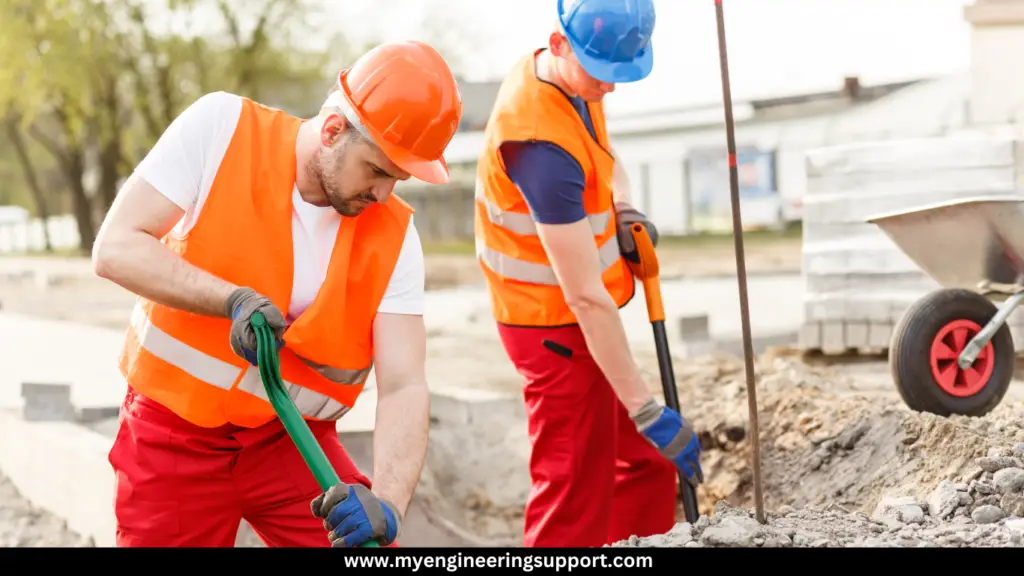

|
Sl. No. |
Work |
Unit |
Labor rate |
|
1 |
Earthwork excavation |
Cft |
8.00 |
|
2 |
Earth filling |
Cft |
4.00 |
|
3 |
Sump water tank solid block wall |
Lts |
3.00 |
|
4 |
sump tank rcc wall -sump tank |
Lts |
5.00 |
|
5 |
Shuttering |
sqft |
41.00 |
|
6 |
Bar bending |
kg |
6.00 |
|
7 |
P.C.C Concrete |
sqft |
36.00 |
|
8 |
Footing concrete |
Cft |
40.00 |
|
9 |
Size stone masonry |
Cft |
40.00 |
|
10 |
column concrete |
Cft |
58.00 |
|
11 |
R.C.C Roof slab & Beam Concrete |
Cft |
55.00 |
|
12 |
R.C.C Slope roof concrete |
Cft |
68.00 |
|
13 |
8″ Block work |
sqft |
33.00 |
|
14 |
6″ Block work |
sqft |
25.00 |
|
15 |
4″Block work |
sqft |
20.00 |
|
16 |
Internal Ceiling Plastering |
sqft |
18.00 |
|
17 |
Internal Wall plastering |
sqft |
15.00 |
|
18 |
External Wall plastering |
sqft |
19.00 |
|
19 |
Parapet Wall (Block Work& Plastering) |
sqft |
45.00 |
|
20 |
Waterproof plastering |
sqft |
25.00 |
|
21 |
Flat Ceiling plastering |
Sqm |
120 |
|
22 |
Slope Ceiling plastering |
Sqm |
120 |
|
23 |
Sqm |
110 |
|
|
24 |
Rough wall plastering |
Sqm |
75 |
|
25 |
Stepped Staircase plastering |
Sqm |
225 |
|
26 |
External plastering |
Sqm |
170 |
|
27 |
Pergola Plastering |
Rmt |
350 |
|
28 |
Plinth Beam masonry |
Sqm |
150 |
|
29 |
Ground Floor masonry |
Sqm |
150 |
|
30 |
First Floor masonry |
Sqm |
170 |
|
31 |
Terrace Floor masonry |
Sqm |
190 |
|
32 |
Duct masonry |
Sqm |
200 |
|
33 |
Parapet masonry |
Sqm |
190 |
|
34 |
Base Coarse marking masonry |
Floor |
2,500 |
|
35 |
Door & Windows Fixing |
sqft |
31.00 |
|
36 |
Ventilators fixing |
nos |
350.00 |
|
37 |
Groove Cutting |
Rmt |
20 |
|
38 |
Elevation Band |
Rmt |
229.67 |
|
39 |
Drip Mould |
Rmt |
30 |
|
40 |
Ele pipe packing |
Floor |
750 |
|
41 |
Mesh Fixing |
Rmt |
6 |
|
42 |
Level Pad fixing |
Floor |
1,500 |
|
43 |
Hacking |
Sft |
1.4 |
|
44 |
Drilling |
Hrs |
87.5 |
|
45 |
Chipping |
Hrs |
120 |
|
46 |
Cornice |
Rft |
140 |
|
47 |
2″&3″ Band |
Rft |
30.00 |
|
48 |
3/4″ Groove |
Rft |
15.00 |
2). Rate of Materials
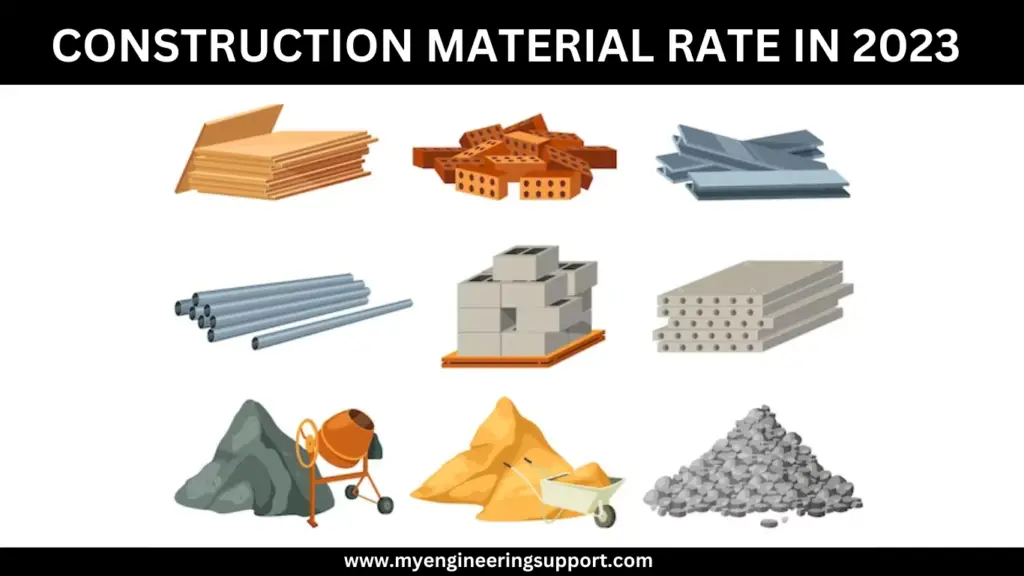

2.1). Cement
Cement is the binding material used in building construction. Cement and steel constitute almost 50% of the total cost of materials. Cement in RCC binds sand, aggregate, and steel together to form a rigid structure. There are different grades and types of cement.
-
Ordinary Portland Cement (OPC)
-
OPC 43 Grade
-
OPC 53 Grade
-
Portland Pozzolana Cement (PPC)
-
Rapid Hardening Cement (RHC)
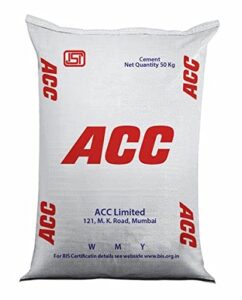

The approximate consumption of cement is 0.4 bags or 20kg per sqft of built-up area. The total cost of cement is 16% of the total materials cost. The prices of cement range from the minimum value to the maximum value which can be seen in the table. The average rate of cement for different types of cement building materials is shown in the table given below.



|
Sl. no. |
Type of Cement |
Rate per Bag |
|
1 |
OPC 43 Grade |
Rs 350 to Rs 390 |
|
2 |
OPC 53 Grade |
Rs 410 to Rs 435 |
|
3 |
PPC Cement Grade |
Rs 316 to Rs 330 |
|
4 |
M Sand |
Rs 4290 |
|
5 |
River Sand |
Rs 6050 |
2.2). Ready Mix Concrete
Ready mix concrete or RMC is concrete that is manufactured at the site and transported to the site for good-quality construction. Ready Mix Concrete is used for keeping a strict check on the quality of concrete that cannot be made at the site.
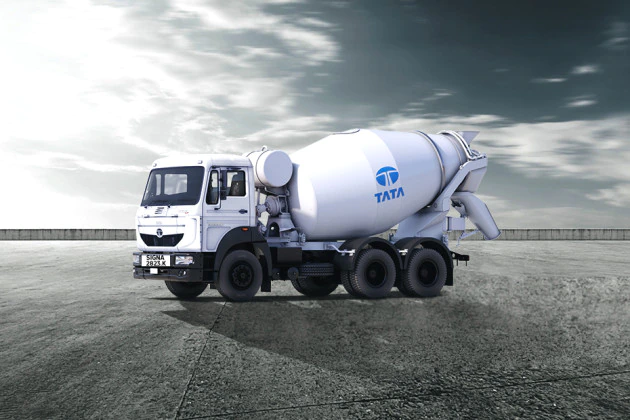

RMC is used for manufacturing concrete above M20 grade of concrete. It is used if the concrete is not able to be made at the site. Building materials rate for different grades of ready-mix concrete is shown here.
RMC Price is about Rs. 3000 to Rs. 7500 as per grade of Concrete. The price of RMC concrete per cubic meter is shown in the table given below.
|
Sl. no |
Grade of Concrete |
The rate in INR (in cubic meters) |
|
1 |
M15 |
3800 to 3900 |
|
2 |
M20 |
3900 to 4200 |
|
3 |
M25 |
4200 to 4400 |
|
4 |
M30 |
4500 to 4850 |
|
5 |
M35 |
4800 to 5200 |
2.3). Sand
Sand is mixed with cement and aggregate in concrete to provide bulk and strength to the concrete structure. Sand is a fine particle of broken rock that comes in different types. The most common types of sand used in construction are as follows:
a). River sand
b). Pit sand/ Coarse sand
c). M sand
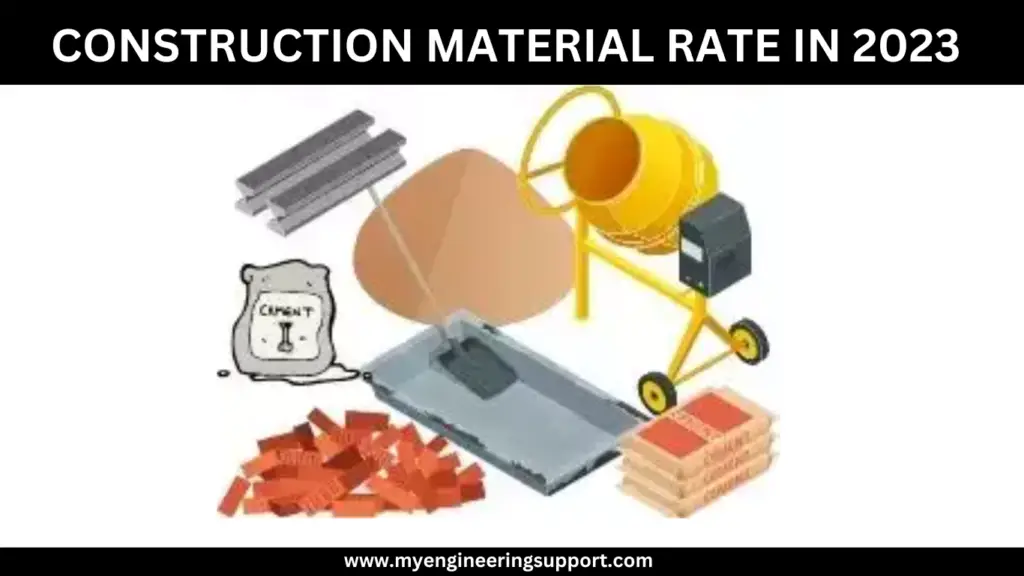

River sand is white-grey in color and rounded that are generally found on the bank of the river. For plastering and construction river sand is preferred.
M sand is also known as manufactured sand or artificial sand or stone sand. M sand is manufactured by crushing granite/ basalt rock by following Indian Standard Codes guidelines.
-
Sand Aggregate Price is Rs. 1600 to Rs. 3300 per ton.
-
The total cost of sand is around 12% of the total materials cost.
-
The approximate consumption of sand in a building is around 8 cubic feet per sqft built-up area.
-
Sand price per ton and sand price per kg is shown in the table given below.
The building materials pricelist for a coarse aggregate of 10mm, 12mm, 20mm, and 40mm are shown below. 20mm aggregate price is Rs. 800 per Ton you can find the detail of all aggregate prices in the table shown below.
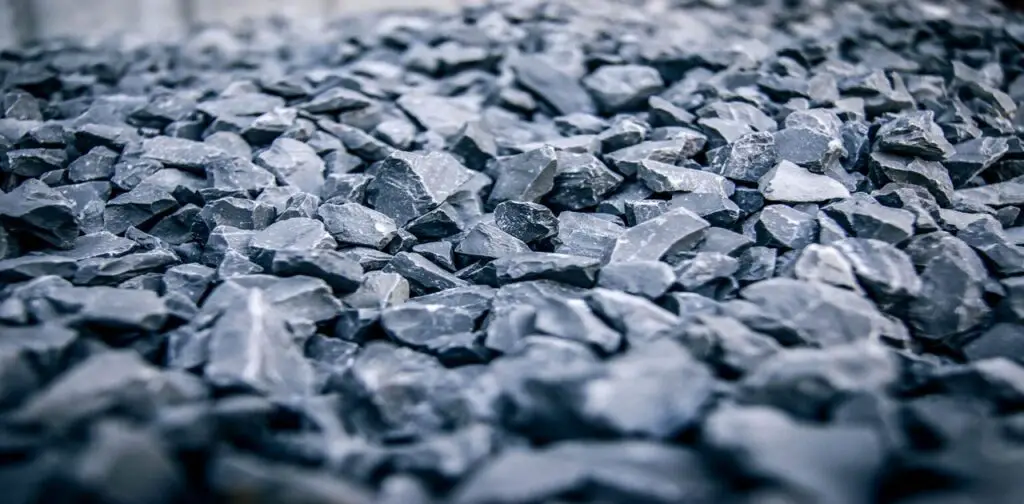

|
Sl. No. |
Aggregate thickness |
Rate per Cuft in INR |
|
1 |
10mm |
68 to 78 |
|
2 |
12mm |
68 to 78 |
|
3 |
20mm |
68 to 78 |
|
4 |
40mm |
68 to 78 |
2.4). Steel
Steel bars are used as construction materials in slabs, beams, columns, and foundations to provide tensile strength to support the structure. High tensile strength bars are Thermo mechanically treated with low carbon steel.
Steel is high strength material compared to concrete. Steel is strong in tension and compression thus it is used at the top and bottom of structures where heavy loads are bound to occur.
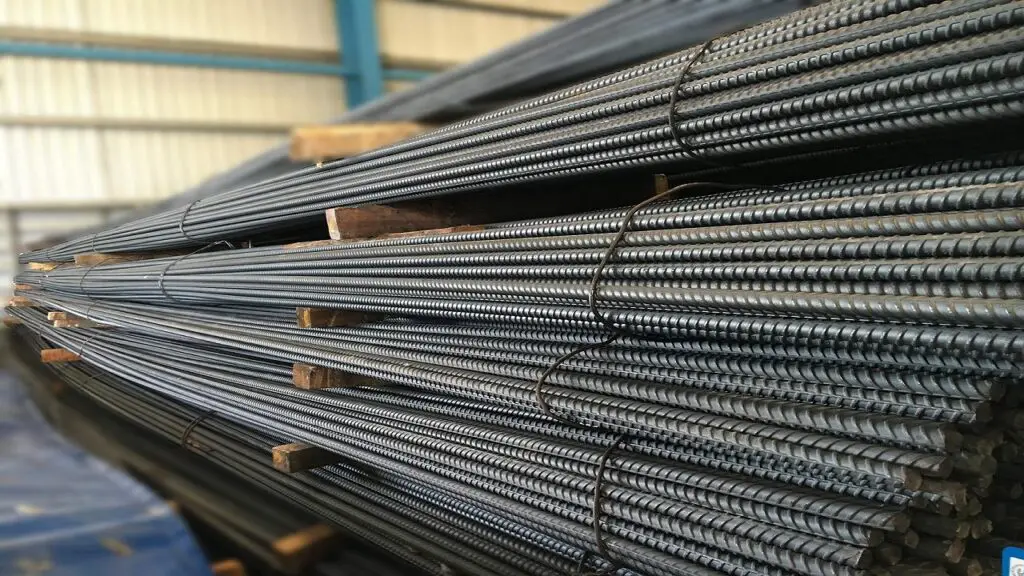

TMT bars bond with the concrete to form the RCC structure. TMT bars come in different grades according to Indian standards. Commonly used grades of TMT bar steel are as follows.
a). Fe 415
b). Fe 415D
c). Fe 500
d). Fe 500D
e). Fe 550
f). Fe 550D
g). Fe 600
Fe 500D is the most suitable bar as it has the perfect balance of strength and flexibility, Fe 500D grade steel bars are recommended for earthquake-prone areas.
TMT Steel Bar Rate is around Rs. 45 to Rs. 55 per Kg. And the cost of steel amounts to around 22% of the total materials cost
2.5). Bricks and Blocks
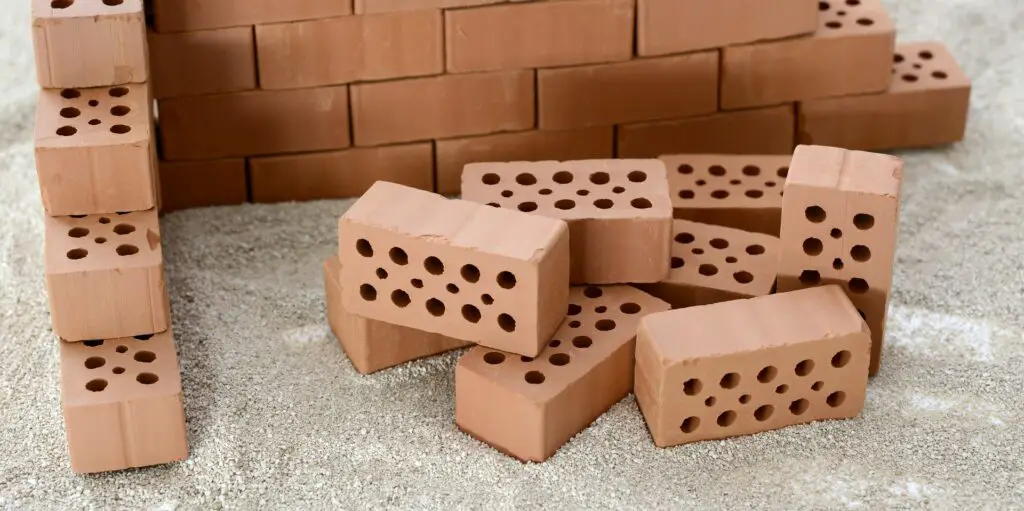

Bricks and blocks are commonly used construction materials for constructing masonry walls. The construction materials price list for all materials is shown here. Bricks are manufactured from clay and come in different shapes and sizes.
Types of Bricks
a). First class bricks
b). Second class bricks
c). Third class bricks
d). Fourth class bricks
Bricks and blocks are important building materials that help in brick wall construction that helps in making rooms and flats.
The price of Brick is Rs. 6 to Rs. 10 per piece.
The price of the lightweight block is Rs. 40 to Rs. 50 per piece.
Today construction rate of bricks for different sizes and different materials like red bricks, fly ash bricks, cement blocks, and AAC blocks are shown below.
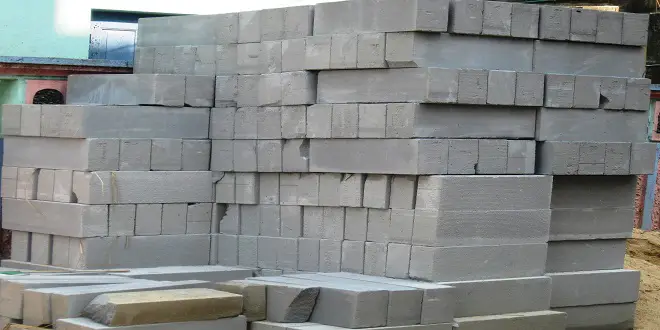

|
Sl. No. |
AAC Block Size |
Rate per Block |
|
1 |
Red Bricks 4″ |
5.5 to 6 |
|
2 |
Red Bricks 6″ |
7 to 8 |
|
3 |
Clay Bricks |
11 to 13.2 |
|
4 |
AAC Blocks |
39 to 46.8 |
|
5 |
Cement Blocks |
27 to 32.4 |
|
6 |
Fly Ash Bricks 4″ |
6.5 to 7.5 |
|
7 |
Fly Ash Bricks 6″ |
7.56 to 8 |
Rate of AAC block according to size
|
Sl. No. |
Size |
Rate per block in INR |
|
1 |
3 inch |
40 to 45 |
|
2 |
4 inch |
55 to 65 |
|
3 |
6 inch |
75 to 85 |
|
4 |
8 inch |
95 to 105 |
|
5 |
9 inch |
105 to 110 |
|
6 |
600x200x 75mm |
34 to37 |
|
7 |
600x200x100mm |
42 to 45 |
|
8 |
600x200x125mm |
44 to 47 |
|
9 |
600x200x150mm |
52 to 55 |
|
10 |
600x200x175mm |
72 to 75 |
|
11 |
600x200x200mm |
77 to 80 |
|
12 |
600x200x230mm |
94 to 97 |
|
13 |
600x200x250mm |
106 to 110 |
|
14 |
600x200x300mm |
125 to 130 |
|
15 |
Solid Concrete Blocks |
30 to 35 |
|
16 |
Hollow Concrete Blocks |
20 o 25 |
2.6). Wood
Wood is a common material that is used in construction work for doors, windows, formwork, furniture, etc. There are many types of wood that are used in construction work, but here discuss only rate woos.
In construction work, 30% of the timber or wood materials are used. Wood is a naturally available material that has good strength, toughness, and durability.
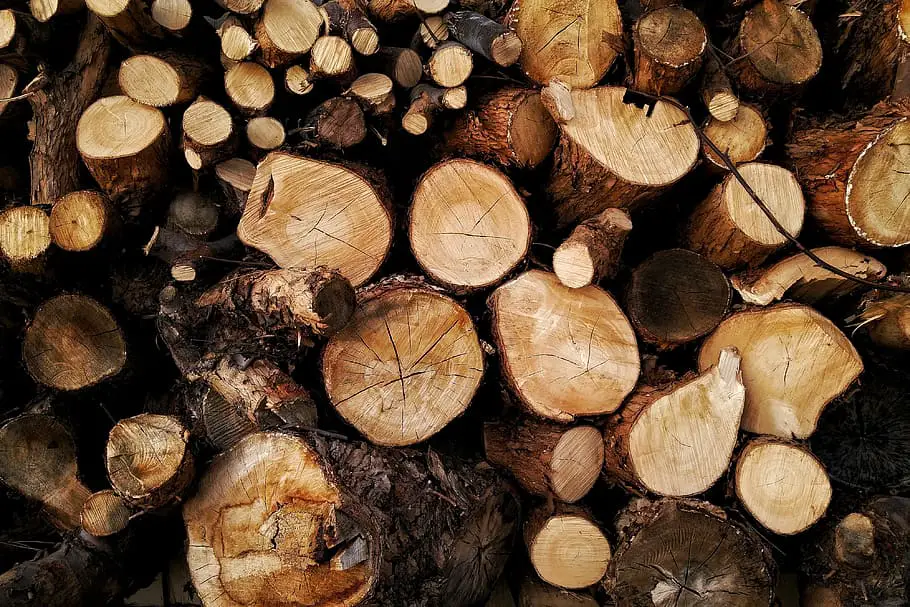

Building materials cost for modern home materials are shown here. Prices of different types of wood are shown in the table given below.
|
Sl. No. |
Type of Wood |
Rate |
|
1 |
Teak Wood |
Rs 7800/-Cft |
|
2 |
Sheesham Wood |
Rs 1000/-Cft |
|
3 |
Pure Sal Wood |
Rs 1750/-Cft |
|
4 |
Deodar Wood |
Rs 680/-Cft |
|
5 |
Vengai Wood |
Rs 7200/-Cft |
|
6 |
8′ x 4′ Plywood (18mm thick) |
Rs 2900 to 3400/-pcs |
2.7). Tiles
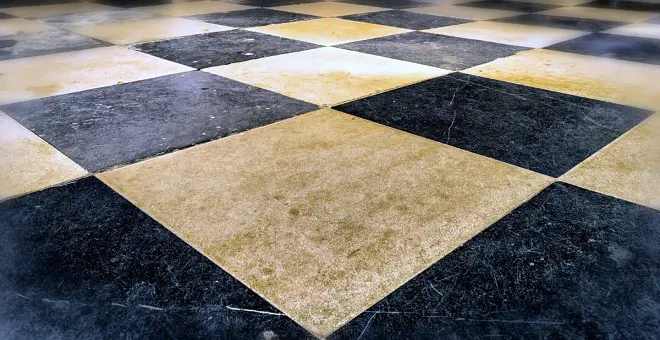

Ceramic and vitrified tiles are the most commonly used building tiling or finishing materials used in construction. Ceramic tiles are used for both wall tiling and flooring. Ceramic tiles are made from red or white clay fired in a kiln.
The total cost of tiles is around 8% of the total cost of materials. Prices of different types of tiles like wall tiles, floor tiles, ceramic tiles, vitrified tiles, cement tiles, and other tiles are shown below.



|
Sl. No. |
Types of Tiles |
Unit |
Rate in INR |
|
1 |
Dado wall Tiles (200 x 300mm) |
Pcs |
18 to 20 |
|
2 |
Floor Tiles (300 x 300mm) |
Pcs |
20 to 35 |
|
3 |
Floor Tiles (600 x 600mm) |
Pcs |
36 to 40 |
|
4 |
Vitrified Tiles (600 x 600mm) |
Sqft |
60 to 80 |
|
5 |
Ceramic Tiles |
Sqft |
25 to 80 |
|
6 |
Laminated wooden floor |
Sqft |
80 to 140 |
|
7 |
Cement Tiles (300 x 300mm) |
Sqft |
20 to 24 |
|
8 |
Paver Block (60mm thick) |
Sqft |
30 to 36 |
|
Sl. No. |
Marble Type |
Rate per sqft in INR |
|
1 |
Amba White Marble |
160 to 185 |
|
2 |
Green Marble |
75 to 95 |
|
3 |
Tandoor Marble |
35 to 40 |
|
4 |
Kadapa Marble |
40 to 48 |
|
5 |
Italian Marble |
290 to 560 |
|
6 |
Shahabad Marble |
20 to 25 |
|
7 |
Kota Stone |
45 to 49 |
|
8 |
Black Granite |
190 to 350 |







2.8). Plumbing
The basic function of the plumbing system in our home is to provide safe and clean potable water for drinking and washing purposes. After the use of water, the discharge that is generated is needed to be disposed of safely.
Plumbing pipes and fittings come in different materials like plastic, GI, Brass, and many others materials. Below we have shown some prices of some of the commonly used plumbing piping materials used.
The price of pipes is depending on the material type and its size. Prices of different plumbing pipes are shown in the table given below.
|
Sl. No. |
Plumbing Items |
Rate per per pipe in INR |
|
1 |
Pipes UPVC |
250 to 312 |
|
2 |
Pipes PVC |
180 to 225 |
|
3 |
Pipes CPVC |
345 to 432 |
2.9). Paint
Paints are used in buildings to make the aesthetic and shiny look of the structure. And they can choose according to Interior wall and exterior wall appearance. Paints come in thousands of colors and shades with multiple finishes like matt, glossy and satin finish.
There are many types of paints available in the market. For choosing the best paint for your home, you should consider the desired properties of paints that are required for your application.
If choosing paint for your external wall then paint properties like waterproof, dirt resistance, and anti-fungal or anti-algae properties will make it the perfect choice.
The consumption of paints for interior work is 0.14 liters per sq. ft. and 0.4 liters per sqft for exterior paints.
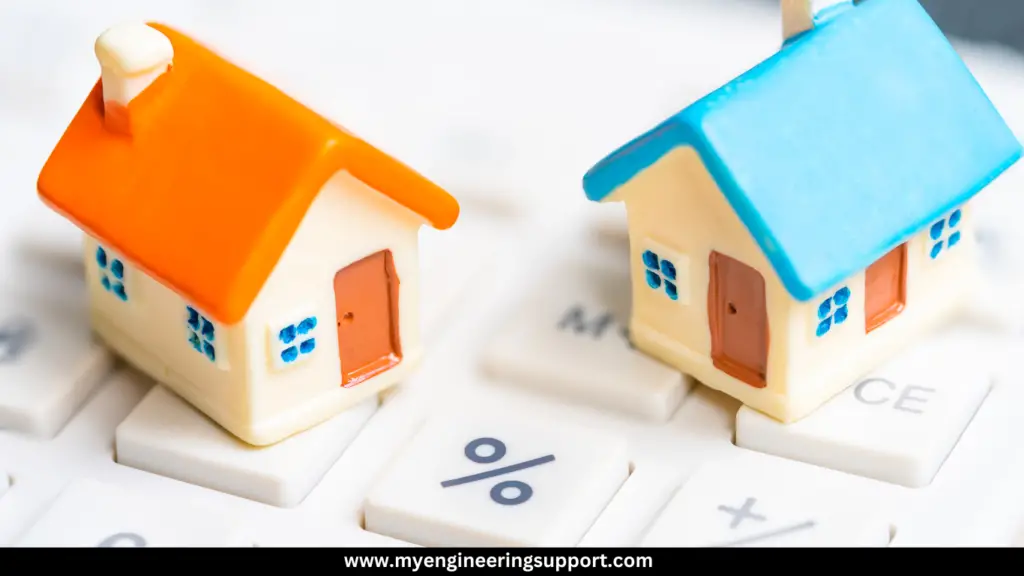

The rate of different types of paints is shown below.
|
Sl. no |
Type of Paint |
Unit |
Rate |
|
1 |
Paint |
ltr |
200 to 435 |
|
2 |
Wall Putty |
Kg |
20 to 30 |
|
3 |
White Cement |
25kg bag |
400 to 500 |
|
4 |
POP |
25kg bag |
200 to 250 |
|
5 |
Lime Powder |
Kg |
10 to 12 |
3.0). Glass
Glass is one of the building materials that are used for decorative purposes and for structural use as well. Glass comes in different types like toughened glass which is used in areas where glass can break and can harm.







The price of the main type of glass that is used in construction is shown below.
|
Sl. No. |
Type of Glass |
Rate per sqft in INR |
|
1 |
Window Glass |
32 to 50 |
|
2 |
5mm Plane Glass |
60 to 85 |
|
3 |
6mm Plane Glass |
85 to 95 |
|
4 |
8mm Plane Glass |
111 to 120 |
|
5 |
5mm Paint Glass |
50 to 60 |
|
6 |
10mm toughened Glass |
105 to 120 |
|
7 |
Laminated toughened Glass |
200 to 700 |
|
8 |
Frosted Toughened Glass |
200 to 800 |
|
9 |
Tinted toughened Glass |
150 to 700 |
3.1). Miscellaneous Building Materials
|
Sl. No. |
Construction Materials |
Unit |
Rate |
|
1 |
Binding Wire |
Kg |
65 to 70 |
|
2 |
Bitumen (Coal Tar) |
Kg |
15 to 40 |
|
3 |
Door Frame |
no. |
1500 to 2200 |
|
4 |
Window Frame |
no. |
4500 to 6000 |
|
5 |
SS Main Gate (depends on weight) |
30kg |
30000 to 40000 |
|
6 |
Railing and Grills |
Rft. |
1650 to 1900 |
Conclusion
-
Construction material and labor rates can vary significantly depending on the location, type of construction, market conditions, and other factors. It’s best to consult local sources such as construction industry reports, and government publications, or reach out to local contractors or suppliers for the most accurate and up-to-date rates in your specific area.
-
Construction material prices are influenced by factors like inflation, supply and demand dynamics, and economic conditions. The average rate of construction materials and labor in 2023 in India is summarized here
Cement –
INR 350 to INR 400 per 50 kg bag.
Concrete –
INR 4,000 to INR 5,500 per cubic meter.
Bricks –
INR 3 to INR 10 per piece depending on size and quality.
Stone –
INR 50 to INR 200 per square foot depending on the type and quality.
Timber –
INR 50 to INR 250 per cubic foot depending on the type and quality.
Steel –
INR 35 to INR 60 per kg depending on the type and quality.
Glass –
INR 100 to INR 300 per square foot depending on the thickness and quality.
Asphalt –
INR 1,500 to INR 2,000 per 50 kg bag.
Plaster –
INR 20 to INR 40 per square foot depending on the thickness and quality.
Insulation materials –
INR 10 to INR 50 per square foot depending on the type and quality.







-
Labor rate per square foot:– In India, the Labor rate & cost per square foot is around 210 to 280 Rs for Residential/ commercial/ institutional buildings, which contains labor costs approx. 140 to 200 Rs per square foot for building a structure or civil work,
- and around 70 to 100 Rs per square foot for finishing like tiling, electrical fitting, plumbing fixtures, painting and putty, door framing and fabrication, and miscellaneous work like curing, repair, storage, and security.
-
It is important to note that these are just average rates. The actual cost of construction labor in India will vary depending on the specific project. It is always a good idea to get quotes from multiple contractors before making a decision.
-
Masons are responsible for laying bricks and other masonry materials. The average labor rate for a mason in India is around Rs. 1,000-1,500 per day.
-
Carpenters are responsible for making and installing wood structures. The average labor rate for a carpenter in India is around Rs. 800-1,000 per day.
-
Plumbers are responsible for installing and repairing plumbing systems. The average labor rate for a plumber in India is around Rs. 1,200-1,500 per day.
-
Electricians are responsible for installing and repairing electrical systems. The average labor rate for an electrician in India is around Rs. 1,000-1,200 per day.
Please note that all given above prices are estimates and may vary depending on location, supplier, quality, and other factors. It’s always a good idea to obtain specific quotes from suppliers for accurate pricing information.







So friends this was the Rate of Construction Materials and Labor in 2023. I hope this article will definitely help you. If you like this information please share it with your friends & If I have missed any information or you have any suggestions then you can mention them in the comments section for more such blog posts just click subscribe to myengineeringsupport.com so that you won’t miss any new post.
If you want a PDF copy of this,

So let’s know by commenting & you can message us on our Instagram & telegram channel, or you can download it from the top right-hand corner of this post.
Bar Bending Schedule (BBS) Basics Part -1
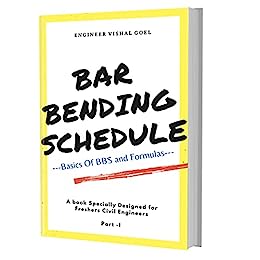
This Ebook is specially designed for Freshers Civil Engineers. Recommended for Quantity Surveyors & Billing Engineers. Here You Can Learn All Basic Concepts & Formulas for Bar Bending schedules (BBS).
Thanks For the Great Attention!
Good Bye & Take Care
Happy Learning
Also, Read,
POP Vs Gypsum Vs PVC Vs Grid False Ceiling – An Ultimate Comparision
Wall Mounted vs Floor Mounted Toilets
Flush Door vs Wooden Panel Door
UPVC vs Aluminium vs Wooden Windows
Related Video,
Rate of Construction Materials and Labor in 2023


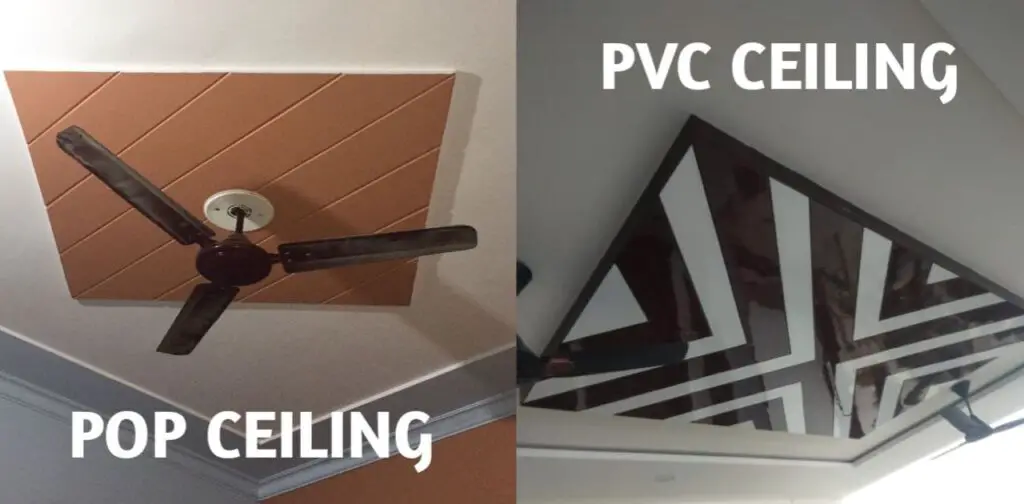
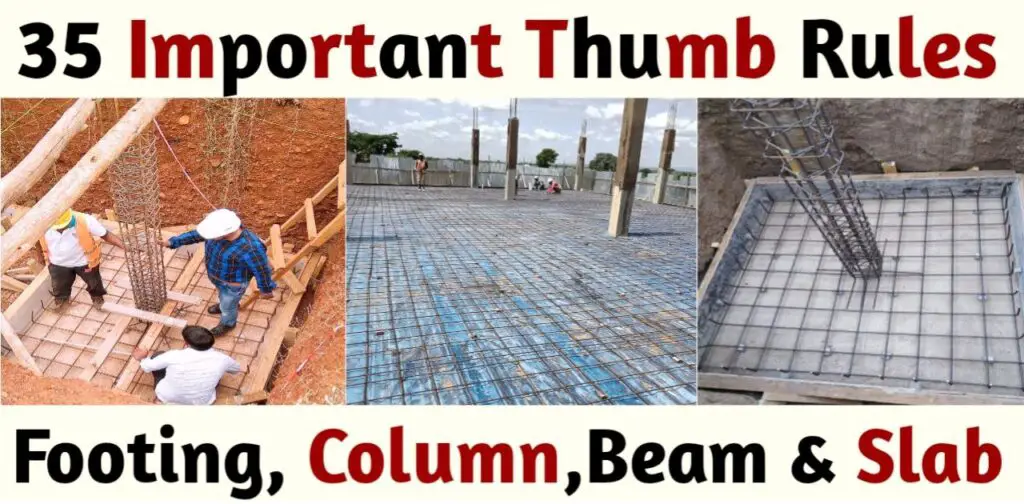
Thanks for any other wonderful post. The place else may just anybody get that type of info in such a perfect approach of writing?
I have a presentation next week, and I am on the look for such info.
Considerably, the particular post is really the very best on this deserving subject. To be sure together with your findings as well as may excitedly look forward to Your potential updates. Just stating many thanks definitely will not only you need to be enough, for your great clarity within your writing. I will straight away get Your own rss to keep up-to-date with any type of updates. Genuine perform and also significantly good results in your company dealings!